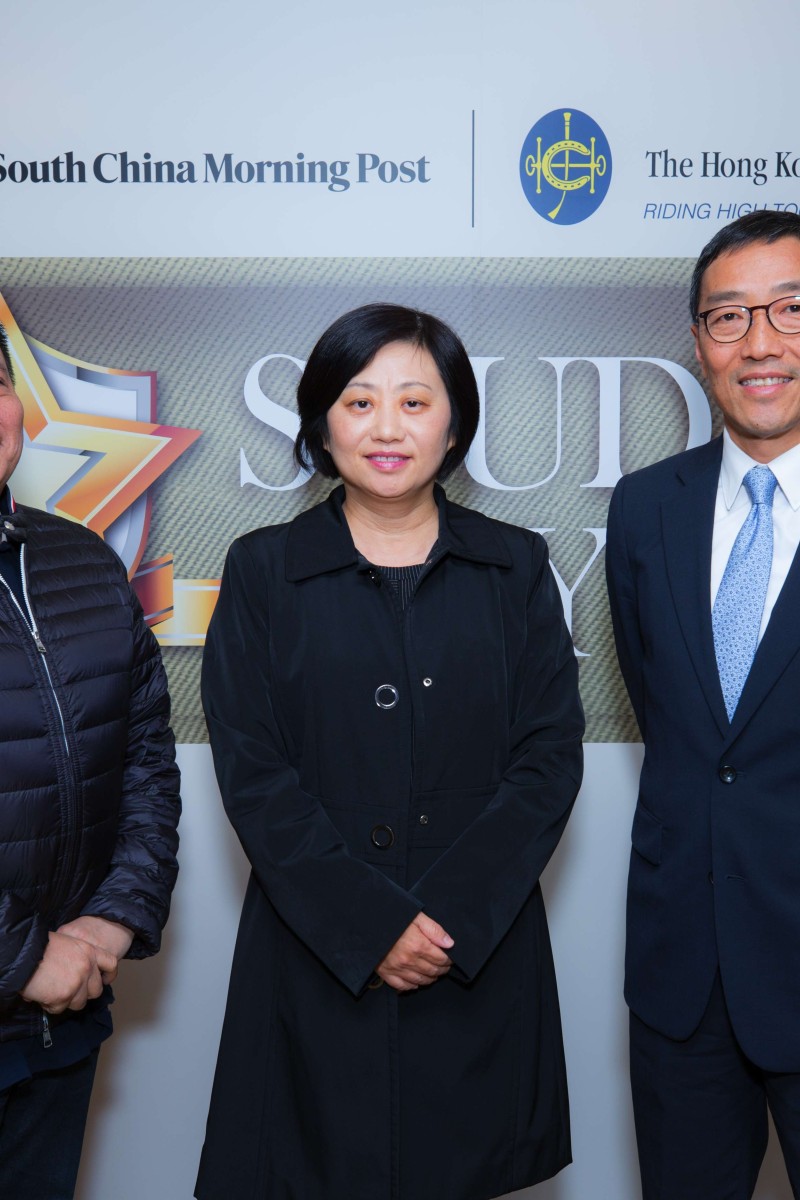
Before meeting the judges, a bunch of future scientists and mathematicians broke the ice by discussing their ideas at the Student of the Year camp
 From left: judges Bien Perez, Karen Sit-man and Albert Wong Hak-keung
From left: judges Bien Perez, Karen Sit-man and Albert Wong Hak-keungThe Student of the Year (SOTY) Scientist/Mathematician candidates have impressed the judges, who appreciate their strong visions for the future. In fact, the awards this year place a lot of emphasis on the candidates’ future plans. This echoes the “Future in our hands” theme which celebrates the 20th anniversary of Hong Kong’s handover.
The SOTY camp took place on February 1, 2 and 11 at Outward Bound in Sai Kung, and we asked questions of some of the attendees.
Chau Chun-wang from St Margaret’s Co-educational English Secondary and Primary School, who was second-runner up in the laboratory exam at the International Junior Science Olympiad 2016, shared his vision for science with the judges.
“I hope to be a scientist and hope to discover new things in the field of quantum theory,” he says. “Most importantly, I want to help mankind as best I can.”
Another candidate, Lin Hin-wang from Yuen Long Merchants Association Secondary School, hopes to become a civil servant and join the government’s Innovation and Technology Bureau.
“The ‘smart city’ is a growing global trend,” he says. “It is closely associated with big data and the environment. My passion lies in big data, especially in how it relates to programming. I hope I can take part in the development of ‘smart city’ projects like electric buses, remote-control trains and internet coverage.”
On top of candidates’ knowledge of their subject, judges are also interested to hear their observations on the differences between students from different cities.
“Students from places such as Shanghai and Singapore have a much more flexible way of thinking and are also more knowledgeable than we Hong Kong students,” says Chun-wang.
Hin-wang has more detailed insight. “Mainland students focus on research into industries such as agriculture and shipping,” he says. “They have invented a lot of related products such as equipment for terraced farms. These ideas sprung from the blossoming economy of the mainland when agricultural work became industrialised. As they were affected by the change, so did their ideas for inventions also change.”
Hong Kong students, on the other hand, put more emphasis on consumer goods – for example, products related to smart homes and vehicles, such as automated curtains. “On the whole, Hong Kong is richer than the mainland, and that’s why the focus of research is different,” he explains.
SOTY judge Karen Sit Man, director of the Hong Kong Science Museum, is impressed that the candidates already have visions for the future.
“Some of the candidates are so young, but they have a clear plan for their own future. Some of them want to be researchers, some of them want to work in a certain field. When I was their age, I didn’t really have a plan,” she says.
Speaking of one particularly impressive candidate, Sit says she appreciates that this student hopes to teach science in the future.
“This is really special because high-achieving candidates usually want to be doctors or lawyers, she says. “So this dream is really rare. The candidate told us they would not be diverted from their education dream under any circumstances.”
Bien Perez, senior reporter for technology at the South China Morning Post, applauds this year’s top three.
“Besides having knowledge, it is important to be a great communicator. And the champion communicates well,” he says.
When deciding the ultimate winners from the candidates, Perez finds three elements important: experience at school and their ambitions after school; serving the community; and communication skills.
“It is impressive when all the candidates want to give back to the Hong Kong community, which is a small economy compared to the mainland or the United States,” he says. “We need brain power and we need people who can teach and communicate. The top three have the potential to do the job well.
“It was also amazing to see candidates who participated before, and this year they were nominated by their schools again. These candidates did not reject nomination by their schools and they did well.”
Judge Albert Wong Hak-keung, chief executive officer of the Hong Kong Science and Technology Parks Corporation, echoes Perez’ view.
“The finalists are very mature,” he says. “They communicate well and they have clear objectives for what they want to do. It makes a lot of difference. The marks are very close and the competition this year is very tight.”
The Student of the Year Awards are organised by Young Post in conjunction with the South China Morning Post and sponsored by the Hong Kong Jockey club with support from the Education Bureau.